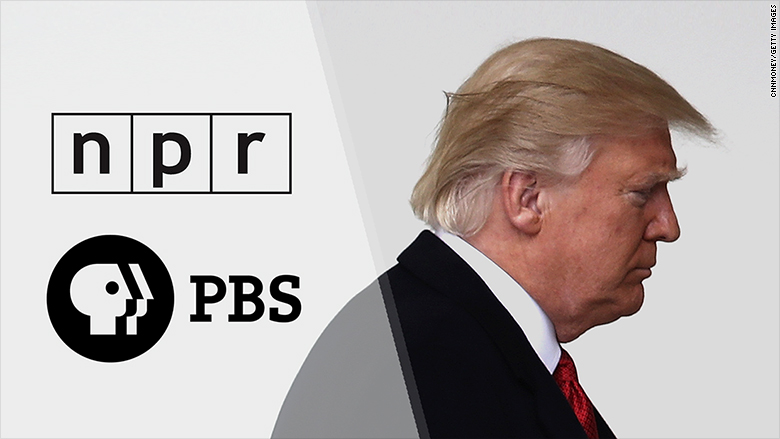
Like it did last year, President Trump's budget proposal eliminates almost all federal funding for public broadcasting.
And just like last year, this specific proposal is probably going to be ignored by Congress.
PBS, NPR and other public broadcasting entities have a lot of support on Capitol Hill and in communities across the country. That's why past Republican attempts to strip the funding, dating back to the 1970s, haven't actually come to pass.
Still, the Corporation for Public Broadcasting -- the group that receives federal subsidies and disperses the money -- has to take the threat seriously.
On Monday, the CPB and other beneficiaries of federal funds dutifully issued statements decrying the budget proposal and promoting the importance of public broadcasting.
At this point, public media advocates have a playbook for these predictable fights. They play up the educational and emergency broadcasting aspects of the medium.
PBS commissioned a new survey of the public and timed its release to coincide with the budget battle. The title of the survey: "Americans Rate PBS and its Member Stations Most Trusted Institution for the 15th Consecutive Year."
PBS CEO Paula Kerger said in a statement that "PBS, our 350 member stations and our legions of local supporters will continue to remind leaders in Washington of the significant benefits the public receives in return for federal funding." She called it "a modest investment of about $1.35 per citizen per year, which include school readiness for kids 2-8, support for teachers and homeschoolers, public safety communications and lifelong learning."
On the other side, conservative critics deride the programming as biased and say taxpayers shouldn't foot the bill for it.
In response, the advocates say the relatively small allocation -- about $450 million a year -- helps keeps rural stations on the air and ensure equal access to education. Trump's proposed budget would cut all but $15 million for fiscal year 2019 and 2020.
The CPB takes the taxpayer money and distributes it, in the form of grants, to local stations and show producers.
In this digital age, public broadcasting is a throwback in some ways. But the websites operated by PBS, NPR, and other public broadcasters have been growing in popularity.
"Since there is no viable substitute for federal funding that would ensure this valued service continues, the elimination of federal funding to CPB would at first devastate, and then ultimately destroy public media's ability to provide early childhood content, life-saving emergency alerts, and public affairs programs," Corporation for Public Broadcasting CEO Patricia Harrison said in a statement Monday.


